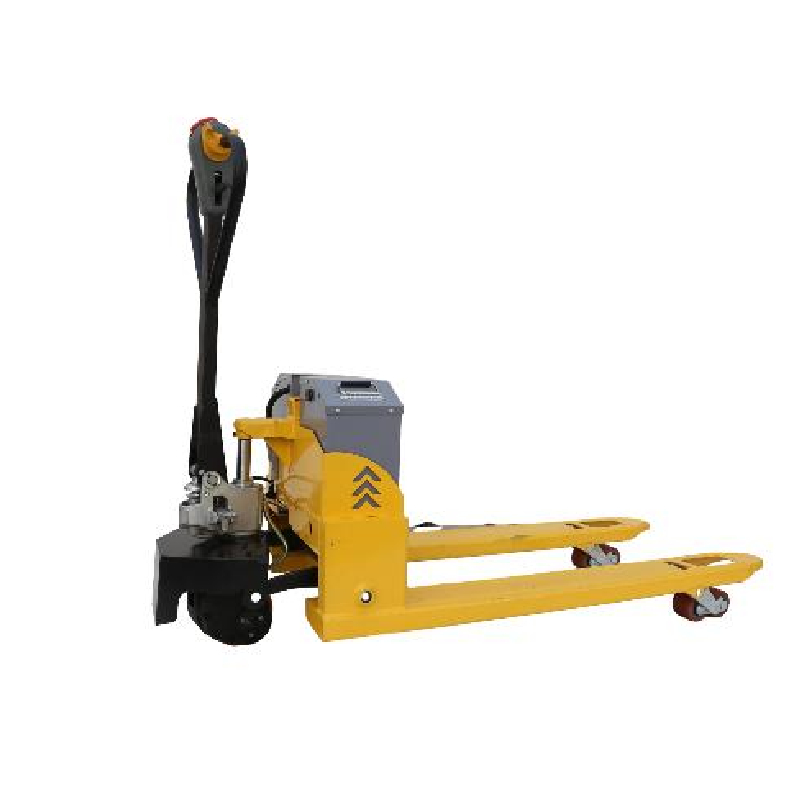


The Significance of Industrial Pallet Trucks in Modern Warehousing
In the world of logistics and warehousing, efficiency is paramount. As businesses seek to streamline their operations and reduce costs, the tools they use become increasingly important. Among these tools, industrial pallet trucks have emerged as indispensable equipment in warehouses and manufacturing settings. This article explores the significance of industrial pallet trucks, their features, benefits, and applications, and how they contribute to improved operational efficiency.
Understanding Industrial Pallet Trucks
Industrial pallet trucks, also known as pallet jacks, are designed specifically for lifting and transporting palletized goods. Typically, these trucks come with a pair of fork-like arms that slide under a pallet to lift and move it short distances. They can be manual or powered, with various designs tailored for different loading capacities and operational needs.
Features of Industrial Pallet Trucks
Pallet trucks come equipped with several essential features that enhance their usability
1. Fork Size and Capacity Most pallet trucks are designed with standard fork sizes to accommodate various types of pallets. The load capacity can vary significantly, with options available for light, medium, and heavy-duty applications.
2. Lift Mechanism Manual pallet trucks usually rely on a hydraulic system for lifting, while electric models can elevate the load with the push of a button. The choice between manual and electric often depends on the volume of goods being moved and the physical demands of the task.
3. Wheels and Maneuverability The design of the wheels affects how easily the truck can be maneuvered. Some models feature swivel casters for tight spaces, while others are engineered for stability and ease of movement over rough surfaces.
Benefits of Using Pallet Trucks

The advantages of industrial pallet trucks are numerous
1. Improved Efficiency Pallet trucks significantly speed up the loading and unloading processes. Workers can quickly move large quantities of goods without the need for overhead lifting, reducing time spent on these tasks.
2. Reduced Physical Strain By enabling workers to transport pallets with minimal lifting, pallet trucks help reduce the risk of workplace injuries associated with heavy lifting. This leads to a safer working environment and decreases the number of sick days due to injury.
3. Cost-Effectiveness Compared to forklifts and other heavy machinery, pallet trucks are typically more affordable to purchase and maintain. This makes them an attractive option for small to medium-sized businesses looking to optimize their operations without significant capital investment.
4. Versatility Pallet trucks can be used in various settings—from small warehouses to large distribution centers. Their versatility extends to handling different types of pallets, allowing businesses to adapt to their specific operational needs.
Applications in Various Industries
Industrial pallet trucks are used across diverse sectors, including retail, manufacturing, food and beverage, and logistics. For instance, in a grocery warehouse, pallet trucks facilitate the quick movement of perishable goods, ensuring that products can be stocked efficiently and promptly. In manufacturing, they are essential for transporting raw materials to the production line, enhancing overall productivity.
As businesses increasingly focus on optimizing their supply chains, the role of industrial pallet trucks continues to grow. With advancements in technology, such as the integration of smart features and automation, pallet trucks are becoming even more efficient and user-friendly.
Conclusion
In conclusion, industrial pallet trucks are an essential component of modern warehousing and logistics. Their ability to improve operational efficiency, reduce physical strain on workers, and adapt to various applications makes them invaluable in today’s fast-paced business environment. As industries continue to evolve, so too will the technology and design of these crucial tools, ensuring that they remain at the forefront of logistics and supply chain management. Embracing the use of pallet trucks can lead to significant gains in productivity and cost savings, making them a worthy investment for any organization looking to enhance its operational capabilities.



